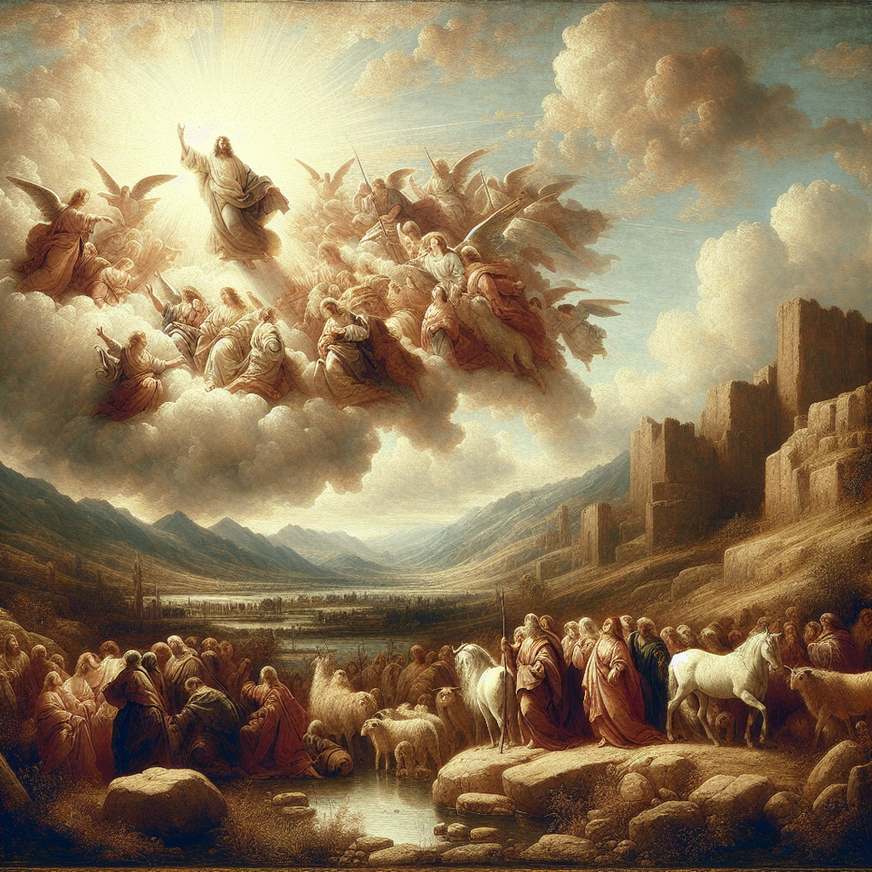Micah 5-7: Hope, Justice, and Divine Restoration

Micah Chapters 5-7: Overview and Analysis
Key Verses
- Micah 5:2: "But you, Bethlehem Ephrathah, though you are small among the clans of Judah, out of you will come for me one who will be ruler over Israel, whose origins are from of old, from ancient times."
- Micah 6:8: "He has shown you, O mortal, what is good. And what does the Lord require of you? To act justly and to love mercy and to walk humbly with your God."
- Micah 7:7: "But as for me, I watch in hope for the Lord, I wait for God my Savior; my God will hear me."
Themes
- Restoration and Triumph: These chapters emphasize the restoration of the remnant of Jacob and their triumph over their enemies, highlighting God's sovereignty and power in delivering His people. This is particularly evident in Micah 5, where the remnant is described as both gentle like dew and powerful like a lion.
- Contrast of Peace and Strength: The remnant's dual nature as gentle and powerful symbolizes the peace and strength that God's people will experience in their restoration. This theme is illustrated through the imagery of dew and showers, representing God's blessing, and the lion, symbolizing strength and dominance.
- Justice, Mercy, and Humility: Micah 6:8 encapsulates the ethical demands God places on His people, calling them to act justly, love mercy, and walk humbly with God. This verse is central to understanding the moral and spiritual expectations in the book.
Historical Context
Micah prophesied during the eighth century B.C. under the reigns of Jotham, Ahaz, and Hezekiah. This period was marked by the Assyrian threat to Judah, which provides the backdrop for Micah's prophecies of God's deliverance and restoration. The Assyrians had already captured the northern kingdom of Israel, and their threat loomed over Judah, making the promise of a new ruler from Bethlehem particularly poignant.
Cultural Context
In ancient Israel, the concept of a remnant referred to the faithful few who remained loyal to God amidst widespread idolatry and sin. The imagery of dew and showers symbolized God's blessing and provision, while the lion represented strength and power. This dual imagery underscores the multifaceted nature of God's restoration.
Etymology
- Dew (Hebrew: tal): Conveys the idea of gentle, life-giving moisture, symbolizing God's blessing.
- Lion (Hebrew: aryeh): Emphasizes the remnant's strength and dominance, reflecting their triumph over adversaries.
Putting it into Practice
- Trust in God's Sovereignty: Recognize that God is in control and will deliver His people from their enemies, as seen in the promise of a ruler from Bethlehem and the restoration of the remnant.
- Embrace Both Peace and Strength: Understand that God's people can experience both peace and strength, reflecting the contrasting images of dew and the lion.
- Faithfulness in Adversity: Draw inspiration from the remnant's faithfulness amidst adversity and strive to remain loyal to God in the face of challenges.
Questions for Reflection
- How do I trust in God's sovereignty when faced with adversity?
- How can I balance the need for peace and strength in my life?
- What are the ways in which I can remain faithful to God amidst challenges and difficulties?